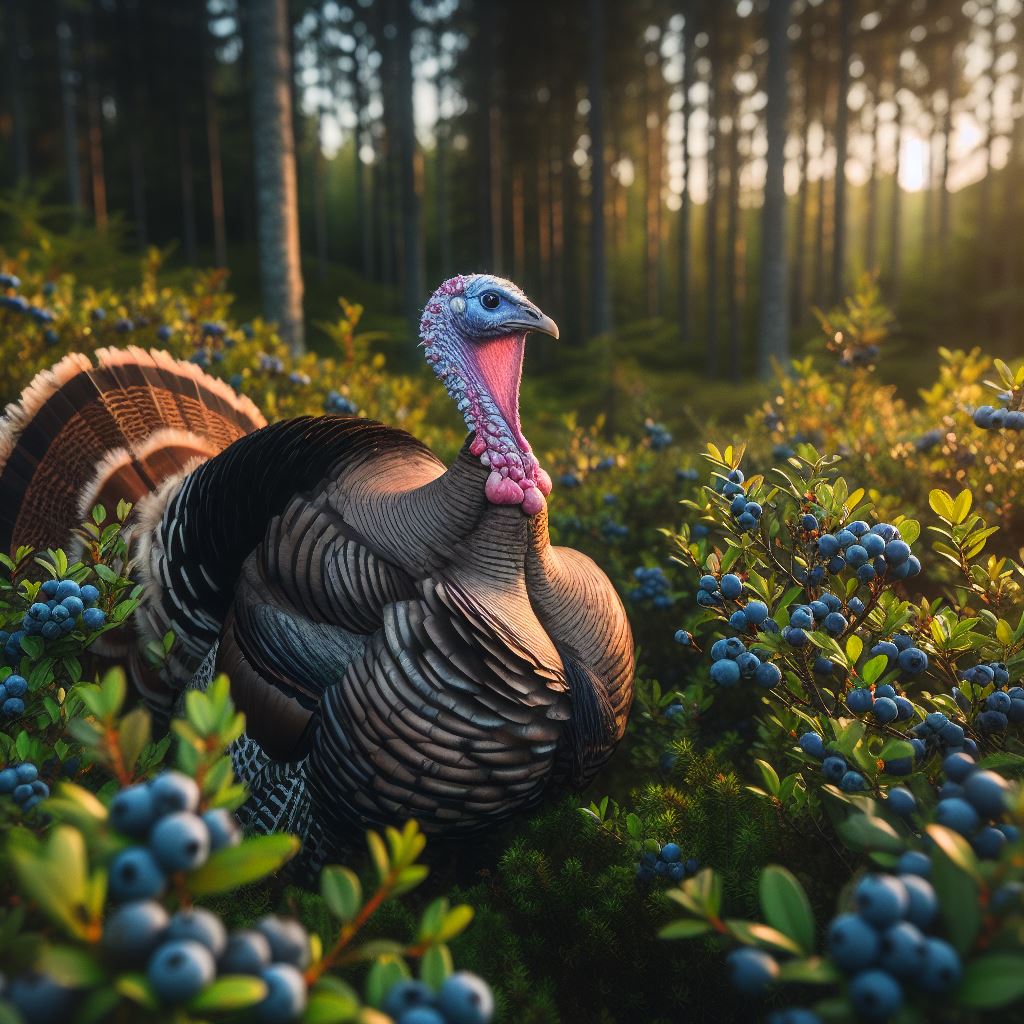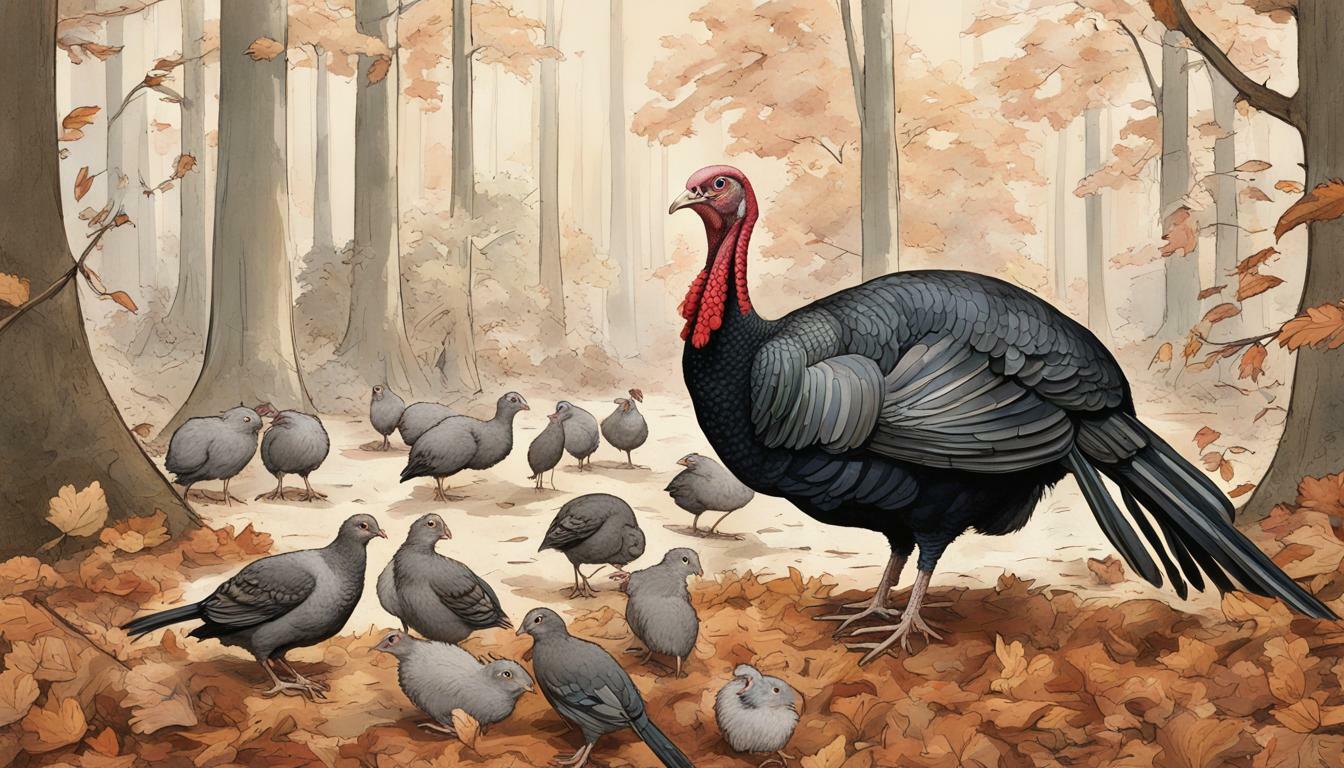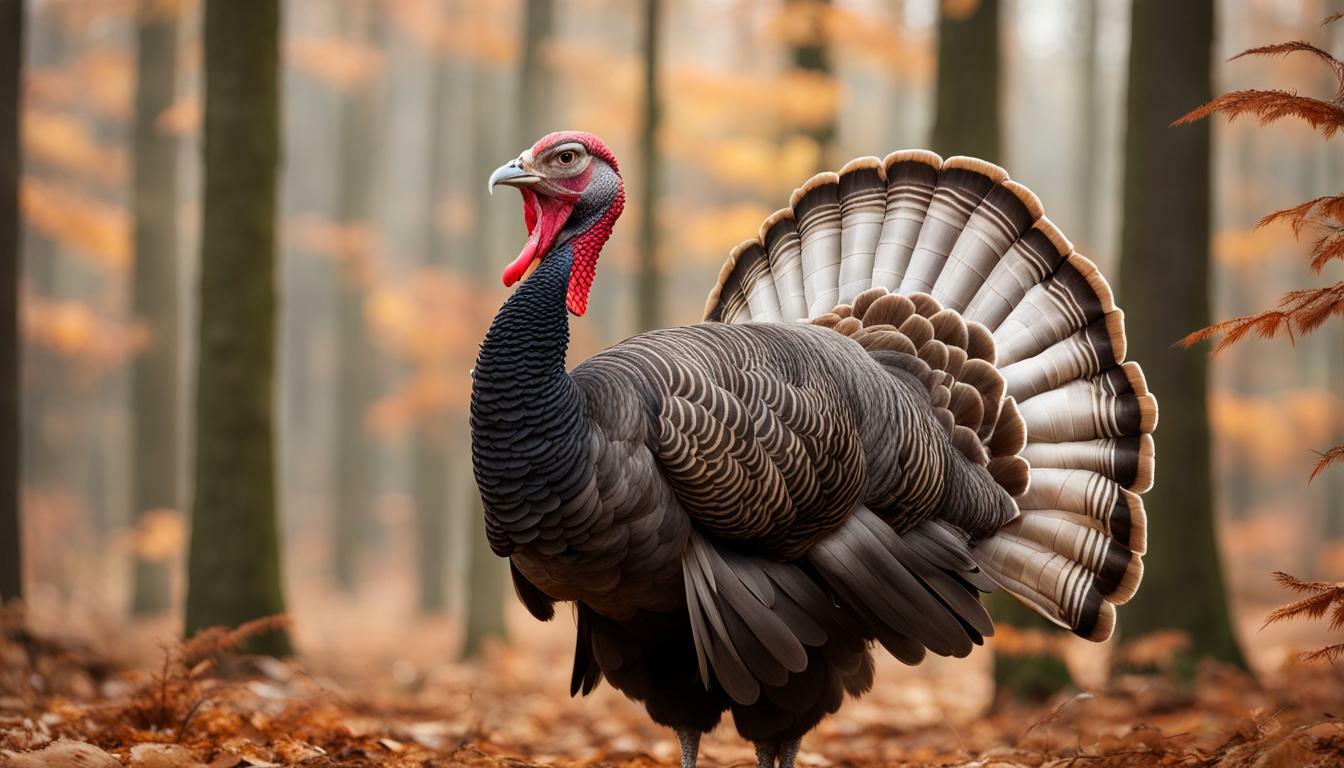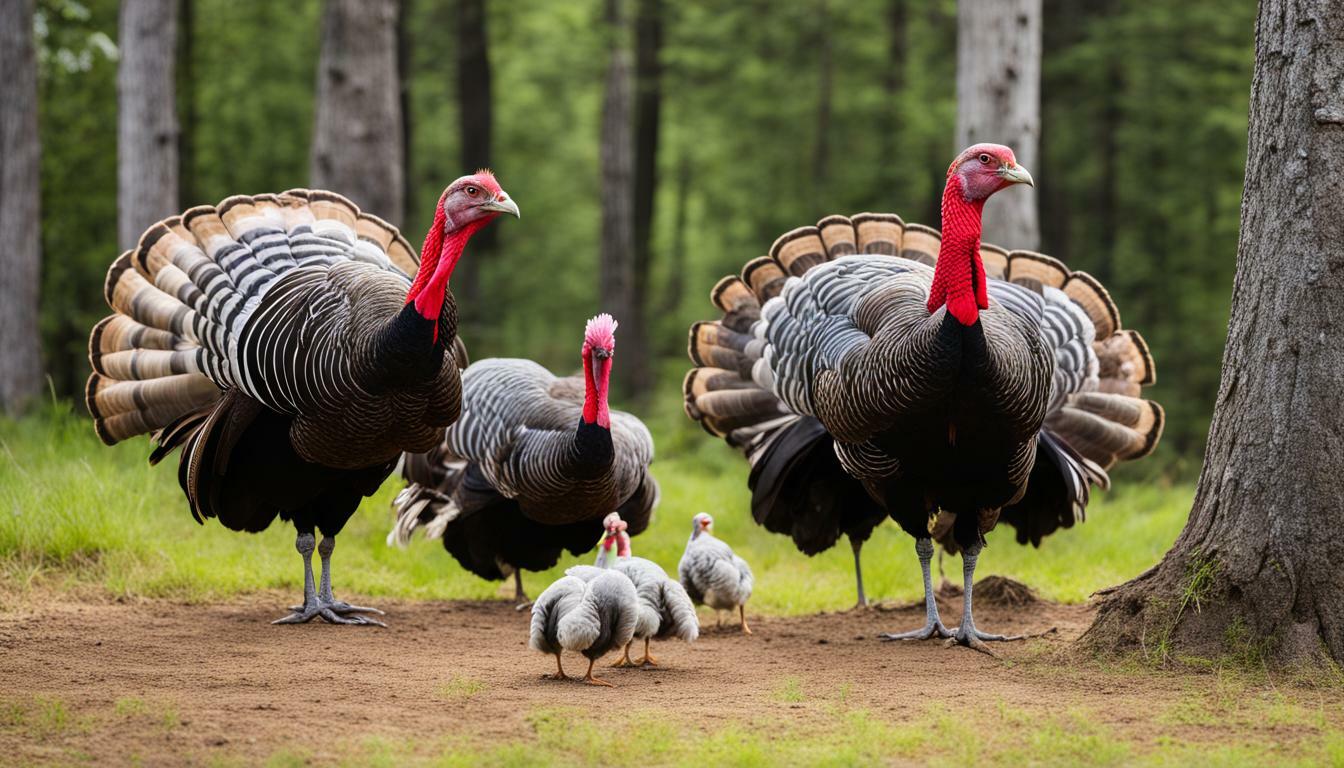Can Turkeys Eat Apples? Find out in Latest Guide!
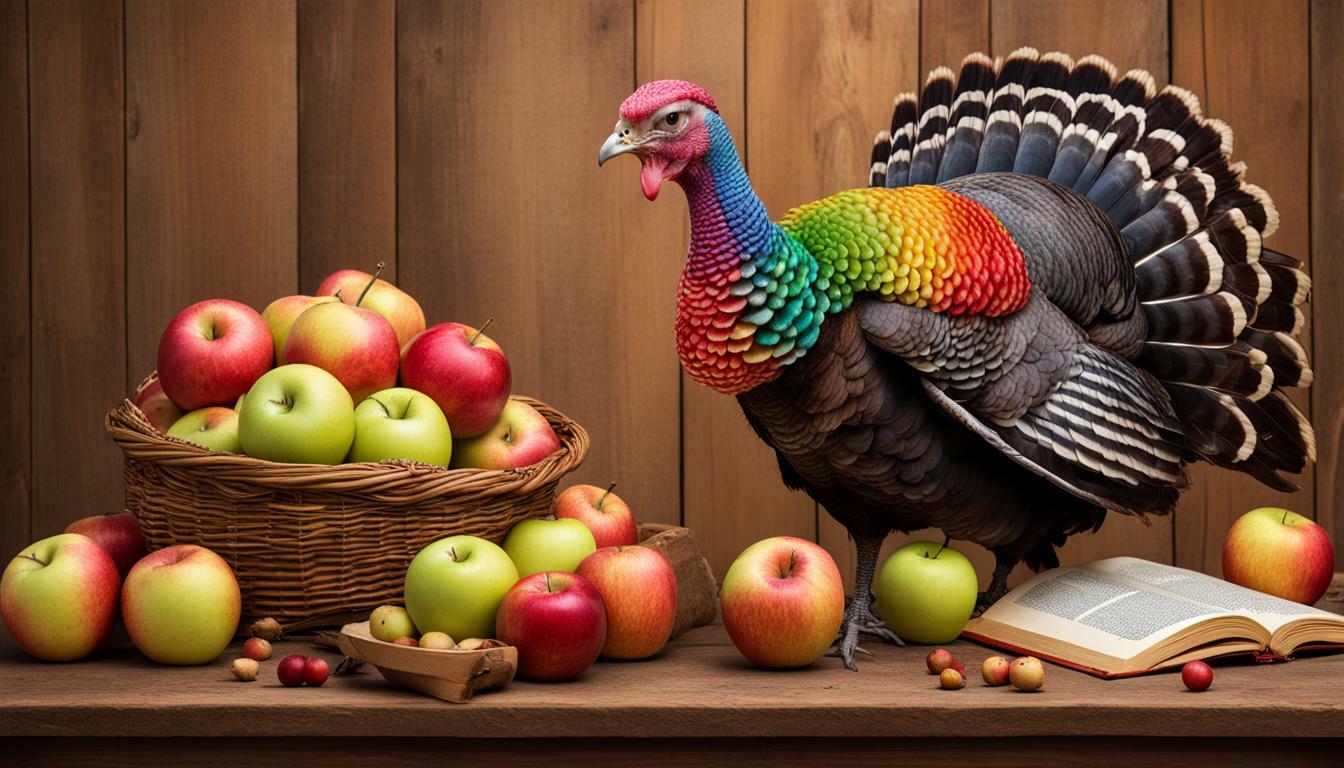
Table of content:
- Can Wild Turkeys Eat Apples?
- Are Apples Safe for Baby Turkeys?
- Do Turkeys Like to Eat Apples from Trees?
- Can I Feed My Turkey Applesauce?
- Do Turkeys Choke on Apples?
- How Many Apples Can a Turkey Eat Per Day?
- What Fruits and Veggies Can Turkeys Eat?
- Is Apple Cider Vinegar Good for Turkeys?
- Can Turkeys Have Apple Peels?
- Conclusion
Turkeys are large birds that are raised throughout North America for their meat. Wild turkeys are also native to much of the United States and parts of Canada and Mexico. Both domesticated and wild turkeys have a diverse diet that includes fruits, seeds, greens, and insects. But can turkeys eat apples?
Can Wild Turkeys Eat Apples?
Wild turkeys can and do eat apples. In fact, apples are a nutritious and safe food for wild turkeys to consume.
Apples contain nutrients that are beneficial for wild turkeys, including:
- Vitamin C – supports immune function.
- Dietary fiber – promotes healthy digestion.
- Potassium – important for muscle contractions.
- Antioxidants – help prevent cell damage.
Wild turkeys often feed on apples that have fallen from trees in forests and fields. They will also fly up into apple trees and knock loose apples so they can eat them.
Apples provide an excellent source of food for wild turkeys in the fall when the fruits are ripe. The abundance of apples allows wild turkeys to fatten up before the scarce winter months.
Are Apples Safe for Baby Turkeys?
Yes, apples are safe and healthy for baby turkeys, also called poults. Here are some guidelines for feeding apples to baby turkeys:
- Wait until poults are 2-4 weeks old before offering apples. Their digestive system needs time to mature.
- Cut apples into small, turkey-bite sized pieces. Whole apples or large chunks could pose a choking hazard.
- Mix small bits of apple in with crumbled starter feed to encourage poults to try the new food.
- Introduce apple gradually over a week. Start with just a few bits and slowly increase the amount.
- Provide fresh, clean water at all times. Apples have fiber that requires extra hydration to digest.
Apples offer antioxidants, potassium, and other nutrients essential for the rapid growth and development of poults. Introducing apples safely will help support the health of your young turkeys.
Do Turkeys Like to Eat Apples from Trees?
Domesticated turkeys that have access to apple trees seem to enjoy eating apples straight from the branches. Turkeys are naturally drawn to peck and forage for food up off the ground.
Like their wild relatives, domestic turkeys will fly up and perch in apple trees to nibble on fresh apples. They relish the chance to eat juicy, ripe apples before they fall.
Letting your turkey’s free range provides enrichment and encourages natural turkey behaviors like roosting and foraging for treats like apples.
Be sure to keep a close eye on your turkeys when they are near apple trees. Apple seeds contain trace amounts of cyanide. Consuming large quantities of seeds could potentially be dangerous. Monitoring your turkeys will prevent overindulging on apples.
Can I Feed My Turkey Applesauce?
Applesauce makes a nutritious supplemental treat for domesticated turkeys. Some key advantages of applesauce include:
- Softer texture is easier for turkeys to digest compared to raw apples.
- Adds beneficial vitamins C and A, potassium, and magnesium to the diet.
- Provides needed moisture, especially important for turkeys on a dry feed diet.
- Appealing taste encourages turkeys to try new foods and provides enrichment.
When offering applesauce, a few tips will help ensure your turkey’s health:
- Buy unsweetened applesauce or make your own homemade recipe. Added sugar is unnecessary.
- Check for added spices, which can irritate a turkey’s digestive tract. Plain applesauce is best.
- Serve applesauce in moderation, no more than 1-2 times per week as a treat. Too much can cause loose droppings.
- Introduce slowly to watch for any signs of allergic reaction or sensitivity.
Overall, applesauce is a great way to provide your turkey with a delicious, vitamin-packed snack that supplies prebiotics for good gut health.
Do Turkeys Choke on Apples?
Turkeys do have the ability to choke on apples if the pieces are too large or not properly chewed. Choking is more likely to occur with domestic turkeys, as they are not as accustomed to eating whole apples.
To reduce the risk of choking:
- Cut apples into manageable slices no longer than 1 inch.
- Remove any seeds, which can get lodged in a turkey’s throat.
- Soften apples by cooking them down into applesauce.
- Supervise turkeys when offering apples to watch for choking.
- Make sure feed is plentiful so turkeys do not gulp apples too quickly.
- Offer apples crushed or mashed for young poults.
Signs a turkey is choking include stretching the neck, shaking the head, gaping the beak, and making choking sounds. If choking occurs, gently sweep the mouth with a finger to dislodge the blockage.
Using proper apple prep and monitoring your turkeys means you can safely offer apples as an occasional treat.
How Many Apples Can a Turkey Eat Per Day?
On average, a 15-20 lb domestic turkey can eat 1/2 to 1 whole apple per day. Larger turkeys may be able to consume up to 2 apples daily.
This serving recommendation is for whole raw apples. If feeding applesauce or cooked apple bits, the portion size should be reduced to 1/4 to 1/2 cup per day.
When feeding apples:
- Start with smaller amounts and gradually increase to observe your turkey’s tolerance.
- Make sure plenty of turkey feed is still available. Apples should not become the main diet.
- Watch for loose droppings, which may mean too much apple is being consumed.
- Remove any uneaten apple after 1 hour to prevent spoilage.
While apples make a great supplemental snack, the bulk of a turkey’s diet should still come from complete feed and greens. Limit apple intake to no more than 10% of total food consumption.
What Fruits and Veggies Can Turkeys Eat?
In addition to apples, turkeys can enjoy a variety of other fruits and vegetables for a balanced, nutrient-rich diet:
Fruits:
- Berries – strawberries, blueberries, and raspberries in moderation.
- Melons – cantaloupe, honeydew and watermelon (no skin or seeds).
- Citrus fruits – oranges, tangerines, clementines (no skin).
- Pineapple, mango, papaya, kiwi – small diced pieces.
- Bananas – excellent source of potassium.
Vegetables:
- Leafy greens – kale, spinach, lettuce, Swiss chard.
- Broccoli, cauliflower, zucchini, squash – vitamin-packed.
- Carrots, yams, sweet potatoes – great for beta carotene.
- Peas, and green beans – excellent protein sources.
When introducing new fruits or veggies, go slowly to allow the turkey’s digestive system to adjust. Fresh, clean water should always be available as well to aid digestion.
Is Apple Cider Vinegar Good for Turkeys?
Yes, apple cider vinegar can provide some benefits when added to a turkey’s water in moderation.
The key advantages of apple cider vinegar for turkeys include:
- Balances pH levels in the digestive tract.
- Supports healthy gut bacteria.
- Aids digestion and nutrient absorption.
- Provides electrolytes.
- Adds vitamin and mineral content.
Add 1-2 tablespoons of raw, unfiltered apple cider vinegar per gallon of fresh water. Change the apple cider vinegar water daily to prevent spoilage.
Monitor your turkeys to ensure they are drinking the apple cider vinegar water. If consumption decreases, reduce the amount of vinegar added.
Apple cider vinegar water helps create a healthy internal environment for optimal turkey nutrition and performance.
Can Turkeys Have Apple Peels?
It’s best not to allow turkeys to consume apple peels. The peels are very fibrous and difficult for a turkey to digest properly.
Consuming apple peels can lead to:
- Intestinal blockages or impactions. The indigestible peel gets lodged and causes obstruction.
- Diarrhea from irritated digestive tract.
- Reduced absorption of nutrients.
- Potential choking hazard.
If you wish to offer apples, the safest preparation is to:
- Wash apples thoroughly before cutting.
- Remove peel, seeds, stem, and core before slicing apples.
- Dice apples into small, bite-size pieces for easy swallowing.
- Cook or mash apples into applesauce to further soften them.
Monitor your turkeys after feeding apples to watch for signs of digestive upset. By peeling apples and properly preparing them, your turkeys can gain nutritional benefits without risks.
Conclusion
Turkeys can definitely eat apples, both in the wild and domestically raised. Apples offer many vitamins, minerals, antioxidants, and fiber that are beneficial to turkeys. However, proper preparation of apples is important to make them easy to digest. Cutting apples into small pieces, removing seeds and peels, cooking down to applesauce, and monitoring portion sizes will allow your turkeys to safely enjoy this nutritious fall fruit. Apples make a great supplemental snack as part of a balanced diet for optimal turkey health.
Welcome. I’m Adreena Shanum, the proud owner of this website, and I am incredibly passionate about animals, especially poultry. I founded adreenapets.com as a labor of love, stemming from my desire to share my knowledge and experiences with poultry enthusiasts worldwide.

